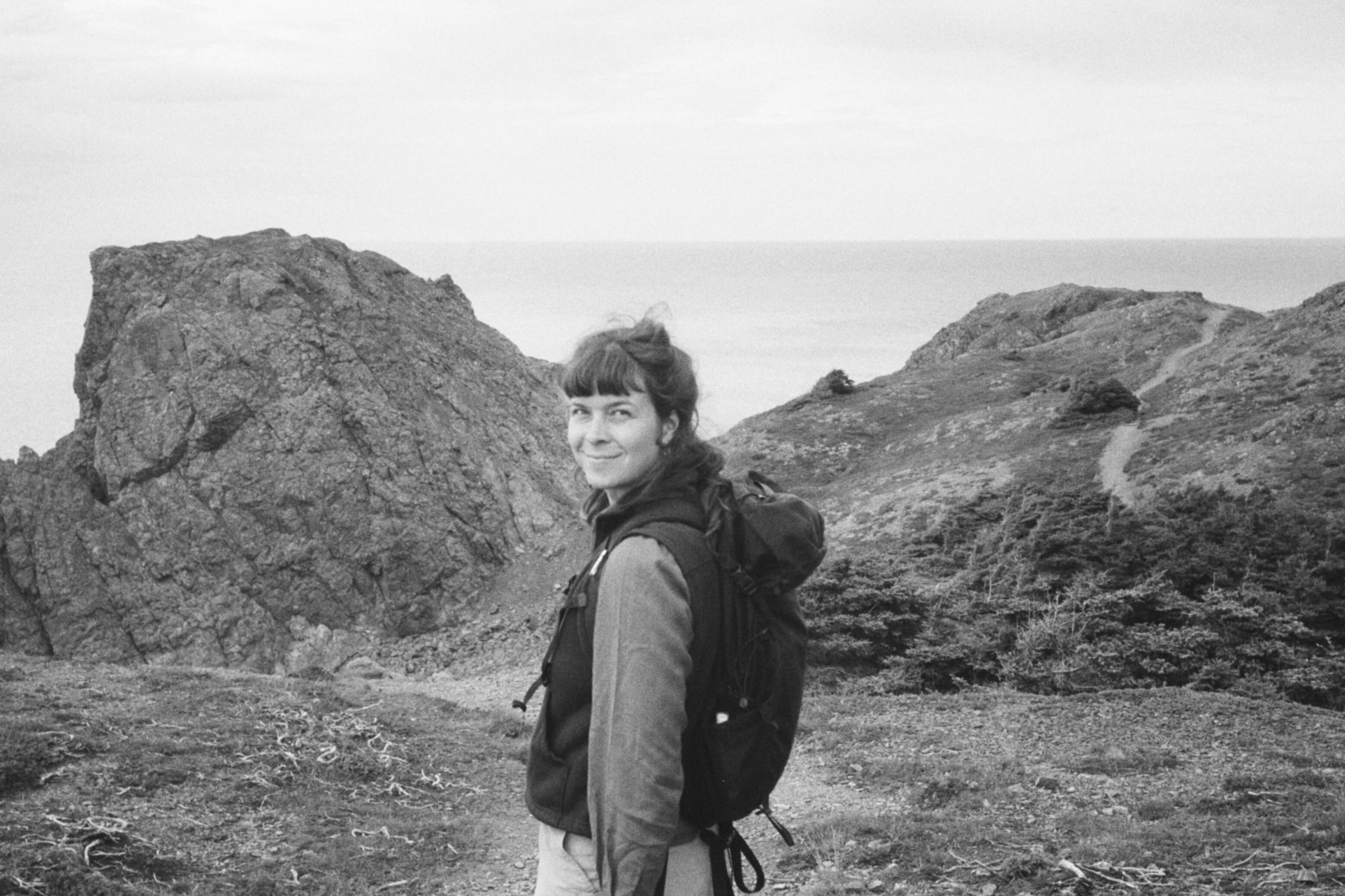Raphaëlle Ainsley-Vincent

“I'm honoured and grateful to have received this award for my master's thesis: for me, it's a validation of the hard work, attention to detail and sensitivity I've put into this project, which has inhabited me over the last few years.”
Raphaëlle Ainsley-Vincent
Master in urban studies, 2023
Centre Urbanisation Culture Société
Supervisor: Xavier Leloup
Raphaëlle Ainsley-Vincent was awarded the Excellent distinction for the theoretical, analytical and ethical quality of her dissertation “Parcours résidentiels de Siqinirmiut (Inuit vivant au Sud) à Montréal”.
The jury underlined the significant contribution of Raphaëlle's work from a scientific and social point of view, as well as the richness of her literature review and the originality of her dissertation, articulated between two fields of study: aboriginal studies and housing studies.
Through her dissertation, Raphaëlle was driven by the desire to contribute to social transformation by focusing on the needs identified by communities, in a respectful and rigorous manner.
What brought you to INRS and what do you remember about your experience?
I chose INRS because I wanted to carry out research that was based on real-life situations and met a community need. At INRS, I experienced a university whose size allows for personalized support and multiple opportunities to develop as a student researcher. I was lucky enough to take part in a number of projects and publications led by my co-master's supervisor Stéphane Guimont Marceau, as part of her research team made up of brilliant, sensitive people.
Can you describe the issues and impact of the research presented in your master's thesis?
For my thesis, I was interested in the residential paths of Inuit workers and students in Montréal, and the housing issues they may face.
Based on stories shared by 17 Inuit living in Montréal, my dissertation offers an exploratory and qualitative portrait of the residential paths of Inuit workers and students in the metropolis. With nearly a third of the Inuit population now residing outside Inuit Nunangat (Statistics Canada 2022), and a significant Inuit population settled in Montreal, this research, developed in collaboration with the Qanuikkat Siqinirmiut? survey team, aimed to enrich our understanding of the residential experiences and pathways of Inuit in the metropolis, and to document the specific barriers and challenges they face in terms of housing.
What does winning this award mean to you?
I'm honoured and grateful to have received this award for my Master's thesis: for me, it's a validation of the hard work, attention to detail and sensitivity I've put into this project, which has been my life's work over the last few years.
My thanks go out, of course, to the members of the Qanuikkat Siqinirmiut? project team for the trust they placed in me; the meetings and discussions through which this thesis was developed were invaluable. "Nakurmiik marialuk" (thank you very much) also to the Inuit who, as part of the Qanuikkat Siqinirmiut? survey, shared the journeys that form the heart of this memoir.
Finally, thanks to my director Xavier Leloup and my co-director Stéphane for their guidance, proofreading and encouragement. Thanks also to the constellation of brilliant people around me, for their unconditional support.
What's next for you, now that you've graduated?
In 2023, I completed training in documentary filmmaking at the École des métiers du cinéma et de la vidéo (ÉMCV) at the Cégep de Rivière-du-Loup. I see documentary filmmaking as a medium that complements my training in the social sciences, enabling me to pass on knowledge, realities and experiences to a wider audience. As part of my end-of-year short film Nutshimiumina (16 min.), I collaborated with Sylvie Basile, Yvette Bellefleur and Kathleen Mark, three Innu women from Ekuanitshit involved in a project to preserve berries and promote the cultural practices intimately linked to them, at a time when climate change is making berry picking less abundant and threatening this reconnection with the territory. This short film was awarded the Prix Paraloeil for the best short film - cohort 2023 by the Cégep de Rivière-du-Loup's École des métiers du cinéma et de la vidéo, and the Prix Kinomada at the Festival du Film étudiant de Québec.
Since last fall, I've been working as a journalist at Radio communautaire de Tête-à-la-Baleine, an isolated French-speaking community on the Lower North Shore. Employed as part of the Local Journalism Initiative, a federal program that supports the creation of civic journalism that meets the needs of remote communities, I not only help produce quality local journalistic content, but also contribute to the broader media coverage of territorial, social, political and economic issues that stem from the region's geographic isolation and unique characteristics.
